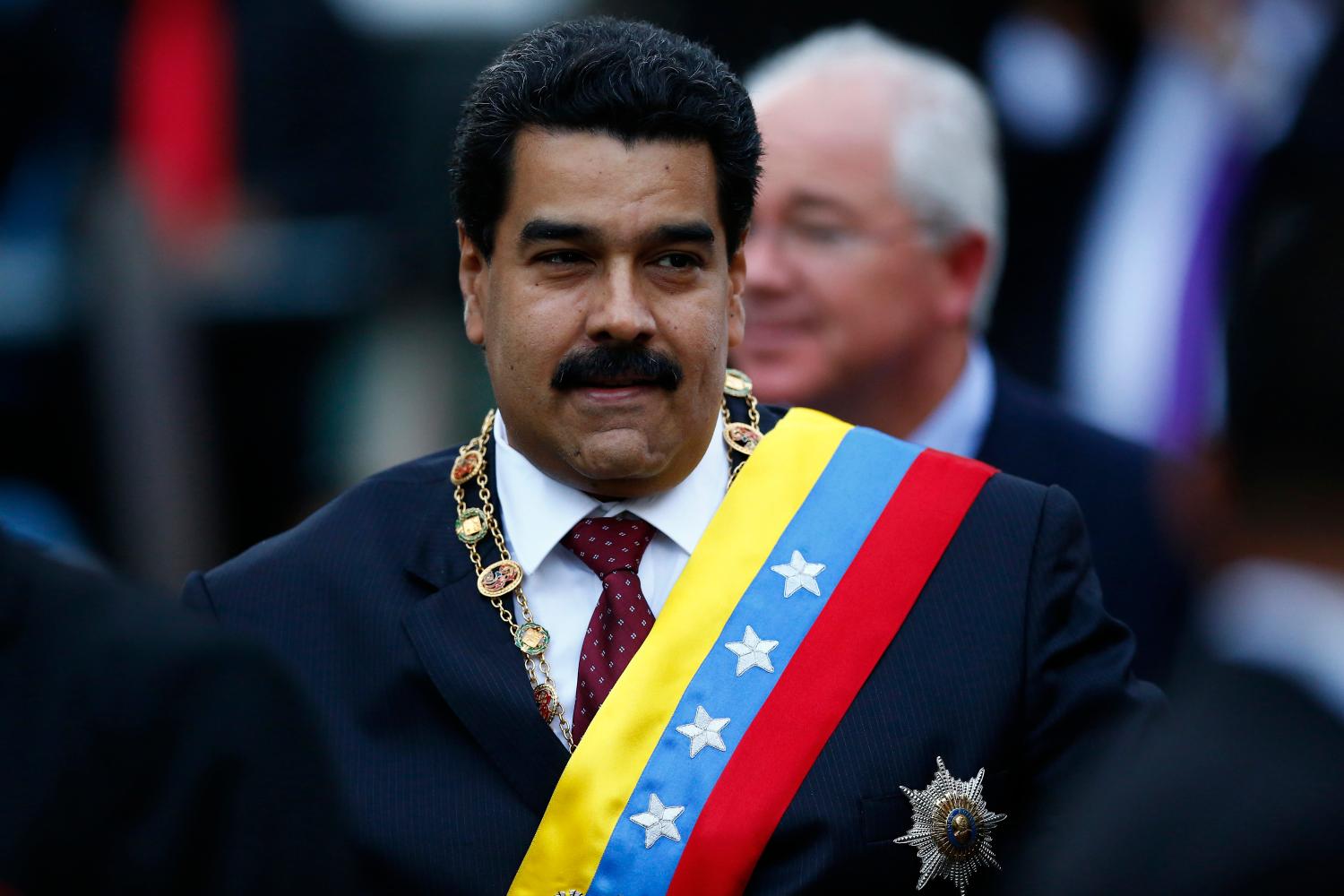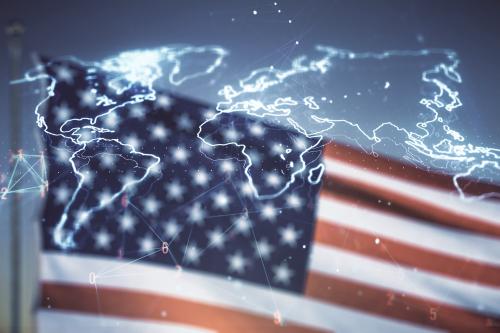Economic mismanagement in Venezuela is producing widespread scarcity and high inflation, creating the risk of a violent popular reaction and regional instability. Harold Trinkunas recommends that President Obama work with other Latin American countries to convince Venezuela to change its course, and to develop a coordinated response in the event Venezuela breaks down in violence.
 |
MEMORANDUM TO: President Obama |
Summary and Recommendations
Economic mismanagement in Venezuela has reached such a level that it risks inciting a violent popular reaction. Venezuela is experiencing declining export revenues, accelerating inflation and widespread shortages of basic consumer goods. At the same time, the Maduro administration has foreclosed peaceful options for Venezuelans to bring about a change in its current policies.
President Maduro, who came to power in a highly-contested election last April, has reacted to the economic crisis with interventionist and increasingly authoritarian measures. His recent orders to slash prices of goods sold in private businesses resulted in episodes of looting, which suggests a latent potential for violence. He has put the armed forces on the street to enforce his economic decrees, exposing them to popular discontent.
Although the volume of crude oil that Venezuela supplies to the United States has declined in recent years, it is in the U.S. interest that Venezuela remain a reliable source of oil. Popular unrest in a country with multiple armed actors, including the military, the militia, organized crime and pro-government gangs, is a recipe for unwelcome chaos and risks an interruption of oil production. A violence-induced regime change in Venezuela would create a volatile situation regionally.
Our leverage is limited, given our poor relations with the Maduro administration. I therefore recommend that your administration begin a conversation now with others in the Americas on the situation in Venezuela, particularly with Brazil, whose interests are also at risk. While dysfunctional economic policies are the immediate threat, at its core Venezuela’s problem is one of a failure of democratic institutions. We should engage others to see if they can help steer a possibly chaotic situation toward one in which Venezuelans have the institutional mechanisms by which to influence their government to change course.
Background
Production by the national oil company, Petroleos de Venezuela (PDVSA), has been falling for over a decade due to underinvestment, poor maintenance and the loss of skilled workers. International investment in the oil sector has been deterred by erratic and arbitrary government policies. Further aggravating balance of payments problems, Venezuela sells a substantial amount of its oil at below market prices to China, Cuba, its allies in the Americas and its own citizens.
Dwindling oil revenues are a problem because oil constitutes over 95 percent of Venezuela’s exports, and two-thirds of food and consumer goods are imported. Hugo Chávez nationalized and then mismanaged many domestic industries, undermining local production. Maduro has since doubled down on these policies. In addition, his administration is increasingly financing the public sector by ordering the central bank to print more money. These policies produced the highest inflation rate in the world in 2013.
The government’s response to scarcity has been to decree price reductions and create government agencies to manage all imports. This produced a rush to acquire what consumer goods remain, compounding the already existing shortage of staples. The Maduro administration has promised that it will ensure sufficient imports, but it has a poor record with the large segments of the economy it already controls.
Venezuela still holds elections regularly, but the Maduro administration has undermined democratic institutions. It has centralized power in the executive branch, preventing other branches of government, opposition parties or civil society from influencing policy. State institutions are controlled by government supporters. Last November, the legislature gave Maduro essentially unlimited power to rule by decree. There are no checks on the executive when it uses state resources to win elections and selectively applies the law to intimidate opponents. Even when its opponents do win elections, the Maduro administration creates parallel governing institutions to route around them.
The risk of a violent outcome may still be low, but it will rise as the true extent of scarcity in Venezuela becomes apparent in the coming months. The threat to the Maduro administration may come from popular unrest, an effort by moderates in the government to oust the radicals and the president, or (least likely) a traditional coup. A now unified national opposition continues to emphasize elections as the solution, but the playing field is hardly level, and elections are not scheduled to take place again until 2015.
Ultimately, the armed forces are key to Maduro’s hold on power, but he lacks the charisma and insider knowledge that Chávez used to keep them loyal. He has placed the military on the street to enforce government decrees that may prove increasingly unpopular as scarcity deepens. The armed forces have been reluctant to engage in repression in the past; if there is popular unrest, they may return to their barracks rather than defend the government. Maduro has an insurance policy in the form of a loyalist militia and pro-government gangs known as “colectivos,” although their existence also means that any attempt to overthrow Maduro will quickly turn violent.
Violence in Venezuela would have international consequences, mainly through its potential to interrupt oil exports. Venezuela still supplies nearly one million barrels of crude per day to the United States, and it exports range as far as China and India. Venezuela is also a major supplier of energy to countries in the Caribbean and Central America. However, a chaotic outcome in Venezuela would also have a major impact on Colombia, both because Venezuela is an important consumer of Colombian exports and because of Venezuela’s role in Colombia’s peace negotiations with its insurgency.
There are few good options that could be taken to reduce the likelihood of violence. To begin with, we must bear in mind that the United States lacks the diplomatic tools, such as democracy assistance, to influence outcomes in Venezuela. Overt U.S. criticism of the Maduro administration or efforts to exert our limited economic leverage would be grist for the mill of the Venezuelan propaganda machine; we should avoid that.
The focus of our efforts thus should be to work with regional and international partners to both reduce the risk of violence and promote the restoration of full democracy. Unfortunately, the states with the most influence in Venezuela—China and Cuba—are the least likely to support change. The Organization of American States, which in the past played a stabilizing role, is hobbled by disagreements among member states, and this limits its ability to invoke the Inter-American Democratic Charter to address the situation in Venezuela.
Brazil is both politically and economically influential in Venezuela, and it has enough at stake to want to avoid a chaotic outcome. We should encourage Brazil to push the Maduro administration to rethink its economic policies, press it to respect the checks and balances contained in Venezuela’s own constitution, and allow elected members of the opposition to fulfill their role in government. It will not be easy to secure this partnership with Brazil, given its preference for non-intervention and current distance from the United States over NSA surveillance issues. However, it offers the best available option under the current circumstances.
In addition, we should also begin quiet conversations with others in the hemisphere on what steps to take should Venezuela experience a violent breakdown of political order. Such an event could potentially fracture the regional consensus on democracy on a scale much greater than that of the Honduran coup in 2009. Maduro’s allies in the region would most likely push for his immediate restoration, but in the absence of functioning democratic institutions, this would only compound Venezuela’s internal crisis. The United States would need to work with key states in the region—Brazil, Mexico, Chile, Peru and Colombia—on a regional consensus in favor of rebuilding democracy in Venezuela.
Conclusion
The Maduro administration’s economic policies are producing widespread scarcity and accelerating inflation in Venezuela, but rather than change course, it has chosen progressively more authoritarian measures to control the economy. Although the probability of political unrest is still low, economic mismanagement is creating conditions that increase the risk of violence in a country where armed groups have proliferated.
We have an interest in a democratic and peaceful Venezuela that is a reliable supplier of oil to international markets. As the economy worsens, the risk of violence grows, which would destabilize the country and interrupt oil exports that Venezuela needs to support its population. The United States should now engage partners in the region such as Brazil to convince the Maduro administration to shift course, or should violence erupt, to prepare a concerted regional response that leads to Venezuela’s re-democratization.
The Brookings Institution is committed to quality, independence, and impact.
We are supported by a diverse array of funders. In line with our values and policies, each Brookings publication represents the sole views of its author(s).




